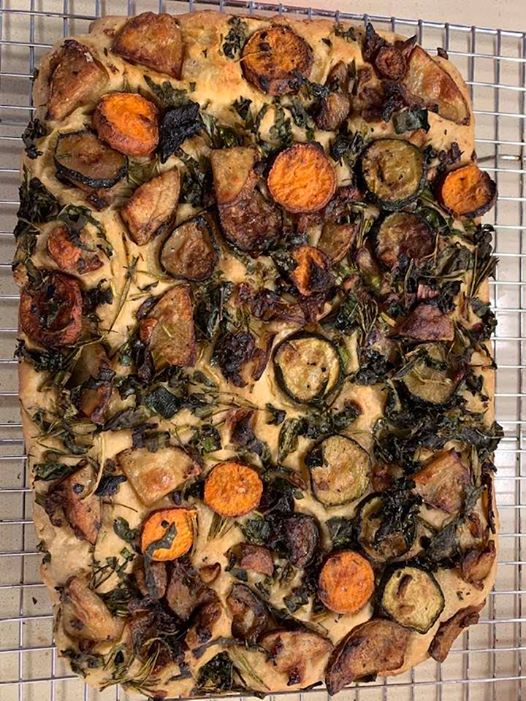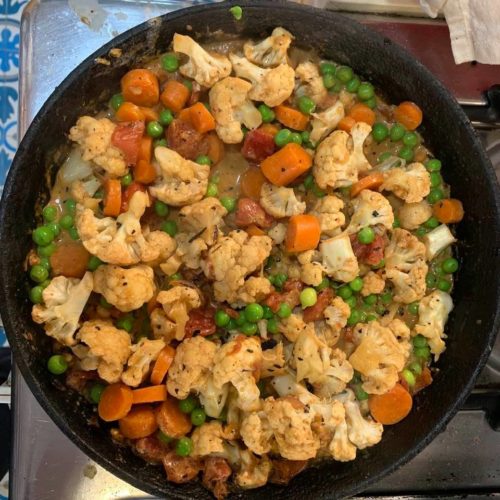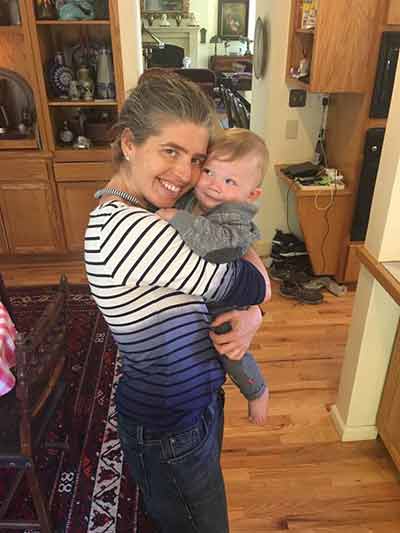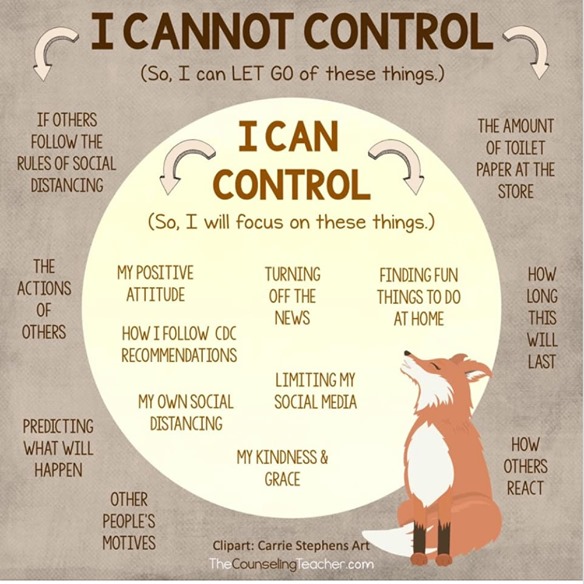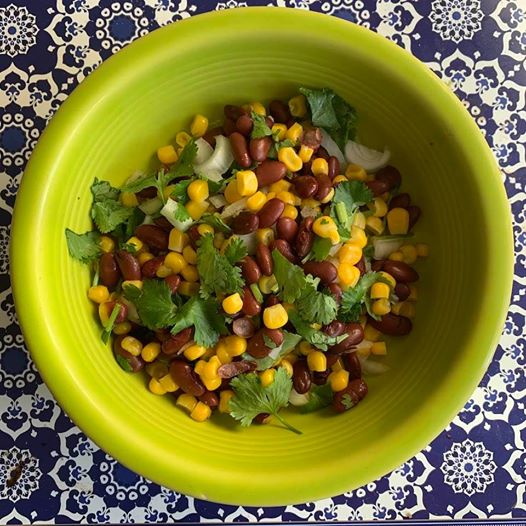3
Caleb
For the third night in a row, Caleb awoke perturbed from a disturbing dream: dozens of hands laid upon his head, some caressing, some gently tousling his curls, and an incessant humming, like the buzzing sounds of a busy beehive, rising all around him. The sensations and sounds took a few moments to fade. Then he sat up upon his cardboard mattress and took in the scenery.
It was still early and the park was enveloped in misty fog. The grass sparkled with droplets of water and the tree leaves above him glistened in the soft light. Farther in the distance, through the mist, he saw shapes suggesting other people, perhaps bundled in clothes or blankets.
Caleb stepped behind a tree to relieve himself, then felt a pang of hunger. He still had a couple of twenty-dollar bills he filched out of Amanda’s wallet before leaving; he wondered how far he could get them to stretch.
Motivated by hunger and some curiosity about his new surroundings, he crossed the street and started walking down Haight street. The shops—hair salons, old car washes, sixties memorabilia joints—were still closed. He found a small grocery store and bought a pack of cigarettes, a stale pastry and a can of coke. Outside, he sat on the sidewalk and quietly drank and ate.
He arrived in town three days ago in the early afternoon on a Greyhound bus he caught the previous night in Colorado Springs. The bus was full, but everyone minded their own business, which suited him fine. His first two nights were spent around City Hall, sleeping in doorways on a faded cardboard ad that read “Willie Brown.” But the noise and traffic disquieted him and he longed for somewhere quieter. Another guy told him about the park, and he ended up here, finding a huge appliance cardboard box in one of the carwash lots and using it as his bedding.
Done with his pastry, he strolled back to the park, still sipping from his can. The people in the park shed their blankets and coats and started to look more like people, but nothing like the people who surrounded him back in Colorado Springs. For folks in dire straits, they seemed quite groomed, their cultivated appearance evincing neglect and care in equal measures: army boots, metallic chains, army jackets, leather vests, torn jeans. Caleb noticed that a few had large dogs, which made him uneasy.
He was rattled by a hand touching his shoulder. “Can you spare one?” The woman, probably in her thirties but who knew, wore her hair in a long braid and was bundled in one of those South American sweaters. She gestured toward his pocket. Caleb took out the cigarette pack and handed her one. She took a lighter out of her pocket, flicked it on, and lit her cigarette. She gestured at Caleb, as if asking whether he wanted her to light one for him, too. He shook his head.
“You’re new, right?” she asked. Caleb didn’t answer.
“You’ll be fine. The winters are not as bad as in Minnesota or whatever. It’s been pretty dry the last coupla weeks. And the cops aren’t on our case with Matrix like they were last year.”
Still a bit groggy despite the coke and the pastry, Caleb listened as she explained. The public libraries were open and were warm inside; the grocery store left out some fruit when it closed for the night; best not to pet other people’s dogs (no risk of that, Caleb thought.) Other people around them struck conversations with each other. Caleb was not in a friend-making mood, but then again, he seldom was. What was it the social worker had said to Amanda when they first met? “Yeah, he’s kind of a loner,” she explained, “but eventually he opens up. It just takes time, right?”
At that first meeting, Amanda did most of the talking. Caleb knew he should make a good impression, be the sweetest kitten at the shelter, but could not bring himself to talk about it all. He let Amanda tell him that she lived with her husband Steve here in town, that Steve worked at Focus on the Family and Amanda worked the reception desk at their church, and that on weekends they hiked the wooden trails near the stream around the Air Force Academy before going to the Sunday morning service and church activities. They already had three adopted children close to his age from the Colorado Springs welfare system; at 11, he would be their third-oldest kid if he wanted to live with them. They all had dinner together every night and went to the same Christian school.
The loner streak did not dissipate. Talking, particularly about what happened before he came to live with them, was hard, not because Steve and Amanda weren’t nice. They were told the basic story, of course; with mom’s boyfriend in prison for it and a big part of it in his group home file, the obviously upsetting bits couldn’t be avoided. But he had the uneasy feeling that, even though they both said they knew it hadn’t been his fault, he felt Steve’s eyes resting on him sometimes with unspoken suspicion. Jesus said, Steve quoted, love the sinner and hate the sin, but where did one end and the other begin? Tarnished with more than his fair share of original sins, Caleb couldn’t possibly live up to Jesus, who was the top priority and the most loved at home, always. Before every meal, at church, of course, and even at Caleb’s junior high graduation, where the principal told the audience to refrain from applauding for their children, because all achievement bowed before Christ. There were a few claps here and there, Caleb remembered; not all the parents were sufficiently devout and self-restrained, but Steve and Amanda sat in complete silence until the potluck.
A loud siren interrupted Caleb’s thoughts. Another joined, and another, and soon the birdsong from the park was completely drowned by a cacophony of sirens. Police cars screeched in front of the people on Stanyan. A bullhorn peeked from a window: “Police!” (no shit, Sherlock, Caleb thought.) “We are breaking down this camp. You are distrupting the neighborhood and must disperse.”
An outburst of shouting came in response. “Where the fuck do you want us to go?” yelled the woman with the long braid. “What is this, Matrix? Fucking Willie Brown. Doesn’t make a difference who’s Mayor, you get hunted down.” “I ain’t moving nowhere. I’m done running away from you assholes.” “I got ten citations for just living. Ten! You just try and get me off.” The police officers, undeterred, emerged from the cars. Caleb had certainly seen his share of cops, and he had no love for them, but never so many. An officer grabbed the long-braided woman by the hand and dragged her away. Before Caleb could protest, he felt his hands pulled behind his back and a push forward. Within seconds he was in a police car, seated between two other people—the long-braided woman and a large man in his fifties. The man’s eyes were damp, and he muttered: “assholes. No heart. Where’s my dog gonna go?”
“Animal control,” said the officer from the passenger’s seat. “If you can’t put a roof over your head, you got no business owning a dog anyway.”
“You assholes,” sobbed the man. “You assholes.”
Surrounded on all sides—his least-preferable way to be—Caleb could not see well out of the window. He was wondering where the officers would deposit them. “Holy shit!” said the long-braided woman. “They’re taking us to 850 Bryant.”
“Shit is on,” said the large man. “There’s gonna be news crews and shit. Didn’t he get elected by promising people he wasn’t going to do this shit?”
The car stopped. The two officers got out of the car, opening the back doors and letting Caleb and the others out. In front of him was an enormous, rectangular building with small windows. The officers ushered Caleb and the others in a long row through the corridor.
“The court opens at nine, which is soon enough,” said the officers. “Whoever makes bail then, can leave; otherwise, it’s a traffic ticket.”
“Another ticket?” said someone Caleb hadn’t seen before. “Does Willie Brown have ideas on how I’m going to pay my ticket?”
“How about getting a job?” asked another officer. “I’m tired of sweeping the streets every day. Or here’s an idea, why don’t you go back to where you came from and live there?”
“I’m from here,” said the long-braided woman. “Born and raised. Where should I go, huh?”
“Save it for the judge,” said the officer. Caleb and the others were shown into a long corridor with cell doors. It was the biggest jail Caleb had ever seen, and he’d seen quite a few.
The cell offered him no respite. Six of them locked together, four of whom had a penchant for talking—just like the incessant noise at Amanda and Steve’s, at the group home, and before. Caleb felt the familiar suffocation rise in his throat, just like it did the evening after his adoption went through. For the hearing itself he wore a button-down shirt and tie, which itched around his neck. Amanda and Steve and the other kids were there, all immaculately dressed, and the judge congratulated them for joining a solid Christian family. “At a time like this, when family values are at risk from all directions,” said the judge, and Caleb thought he was looking straight at him, “it is heartwarming to see God-loving people doing the right thing, saving these kids, and offering them a personal relationship with Jesus Christ.”
From the hearing, they headed off to the church, where dozens of helping hands put together a party to celebrate the adoption. Pastor Ethan took the microphone, blessed Caleb as a new brother in Christ, and invited the congregation to lay hands on him in blessing. Before Caleb could protest, he was surrounded by people—some he knew, many he didn’t—and felt the weight of a clammy, cold hand on his forehead. Another hand followed on the crown of his head, and soon, there were fingers in his hair, hands on his back, hands on his shoulder; the garlicky breath of a parishioner invaded his perception, sickening him. “Praise Jesus!” Said Pastor Ethan. “Praise Jesus!” called out the parishioners. Caleb, for whom the hands called the memory of other unwelcome hands, clammed up, shut his eyes, and waited for it all to end.
The cell door opened, rattling Caleb. Two officers he had not seen before, wearing a different uniform, motioned for Caleb and his cellmates to follow them. They walked down a long corridor and up a tall staircase, ending in a wider hallway with a shiny floor. Caleb was led into a courtroom, where he sat in silence, spoken to by no one.
Looking behind him, he saw rows of other people, some of whom he recognized from the park. Behind them was a strikingly good looking man in his forties in a short haircut and a crisp gray blazer over a blue collared shirt and jeans. The man looked straight at Caleb and smiled. Not only with his mouth, with the corner of his eyes. Caleb’s eyes opened wide. The man quietly nodded at him.
“All Rise!” announced the clerk and a slender woman in a bobbed haircut entered through a side door, wearing a black gown. The woman sat at the judge’s seat and they were all motioned to seat.
“Today we’re looking at loitering, right?” said the woman at the clerk. “It’s as if Frank Jordan never lost the election.” The clerk chuckled. The woman lifted her eyes and took them all in, then raised her eyebrows in surprise.
“Mr. Ellstrom?” she asked. “What are you doing here?”
The man in the gray blazer rose. “Your honor,” he said, “Perhaps I can help lighten the load here abit. I will bail out—” he turned to Caleb quickly and whispered, “what’s your name?” Caleb mumbled his name, “Caleb here, and I am capable of offering him housing and a job.”
“That’s remarkable, Mr. Ellstrom,” said the judge. “Will you post bail?”
“Certainly,” said the man. The judge motioned at Caleb. He approached the bench.
“Caleb, this is your lucky day,” said the judge. “Mr. Ellstrom here will take good care of you. Do you want to take this chance today?”
“Yes,” said Caleb. He cleared his throat; he had not heard the sound of his own voice in days. “Yes, your honor, thank you.”
The judge motioned him away and Ellstrom gestured at him, goodnaturedly, to come along. Spellbound, Caleb followed him outside the courtroom.
“Have you had anything to eat this morning?” said Ellstrom. Caleb nodded. “Enough?” asked Ellstrom. Caleb did not reply. “Well, I’m hungry. I’m gonna go for some eggs. Will you come with me?” Caleb nodded.
They exited the building, turned right, and crossed the street. Ellstrom pointed at a small joint. “It doesn’t look like much, but their breakfasts are really good,” he said. They stepped in and took a small formica table. “Hello, Mr. Ellstrom,” said a waiter, “it’s good to see you again.”
“Hi, Clark,” said Ellstrom. “Can you make us a couple plates of eggs and home fries? Some toast, too?”
“Sure thing,” said Clark and disappeared into the little kitchen.
“Look, Mr. Ellstrom,” said Caleb. “I can’t thank you enough, but—”
“Call me Neil,” said Ellstrom. “It’s no big deal, really. How long have you been in town?”
“Three days,” said Caleb.
“Do you have any construction experience?”
“Some,” said Caleb. This was not a lie. Steve took the boys to volunteer at Habitat for Humanity sometimes, and Caleb learned to pour cement and some of the basics of laying pipes.
“That’s great,” said Neil. “I could always use someone on my crew.” The eggs arrived, warm and fragrant, with some crispy hot fries and a buttered toast. Caleb looked at the plates with hesitation, but as Neil smiled and said, “dig in,” he started devouring his meal.
“Wow, you’re inhaling it,” laughed Neil. Caleb stopped eating, feeling self-conscious. “On my crew, you get a hot meal every morning. Folks work harder and better if they’ve had something solid to eat before work.”
Caleb looked at Neil’s smiling face and suddenly realized they had not said grace before the meal.


